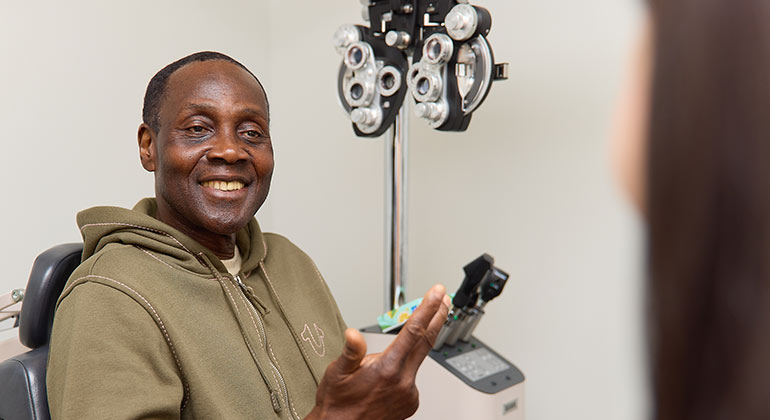
Cataract Surgery FAQs
You may have questions about cataract surgery and what will happen afterward. Here we answer some of the most commonly asked questions.
Do you operate on both eyes at the same time?
If you need cataract surgery in both eyes, you will have two separate surgeries. Once you recuperate from the first procedure, we will schedule the second. They may be as close as two weeks apart. Your vision will fluctuate after surgery, and once both eyes have had surgery, your doctor will determine if you need glasses.
Will I be awake during the procedure?
We usually use topical anesthesia (eye drops). You may also receive a sedative and/or anti-anxiety medicine during the procedure. Occasionally, a patient will receive a Novocain-like medication injected under the eye to relax the eye muscles and numb the nerves for pain. General anesthesia is uncommon but we can use it if you feel you would be uncomfortable during the procedure, have a difficult time remaining still, or have intense anxiety.
How long does it take the eye to heal after cataract surgery?
You should expect the healing process to take about four to eight weeks.
What are the risks and complications?
Complications after cataract surgery are rare, but they can occur, as with any surgery. Possible complications include:
- Bleeding
- Elevated intraocular pressure
- Infection
- Inflammation
- Need for additional surgery
If you experience pain, redness, or change in vision at any time after surgery, call your doctor immediately or go to an emergency room. These problems can be successfully treated if you see a doctor right away. At the Center for Refractive Solutions, we are particularly well equipped to deal with any complications thanks to a full complement of eye specialists and state-of-the-art diagnostic and surgical technology.
How do I care for an IOL?
An IOL is a permanent replacement for your natural lens. After it has been placed inside your eye during surgery, it requires no care. You cannot feel or see it, and others won’t notice it. Today, almost all patients having cataract surgery choose an IOL.
Will I still need glasses or contacts after my cataract surgery?
Each person is different. While cataract removal will greatly restore your vision, you may still require prescription eyeglasses or contact lenses. This will depend on whether you chose monofocal or multifocal intraocular lenses. At the Center for Refractive Solutions, our cataract specialists develop customized treatment plans that help reduce the need for glasses after cataract procedures. It is important for you to discuss your visual needs during the initial consultation to ensure that the treatment plan fits your needs.
